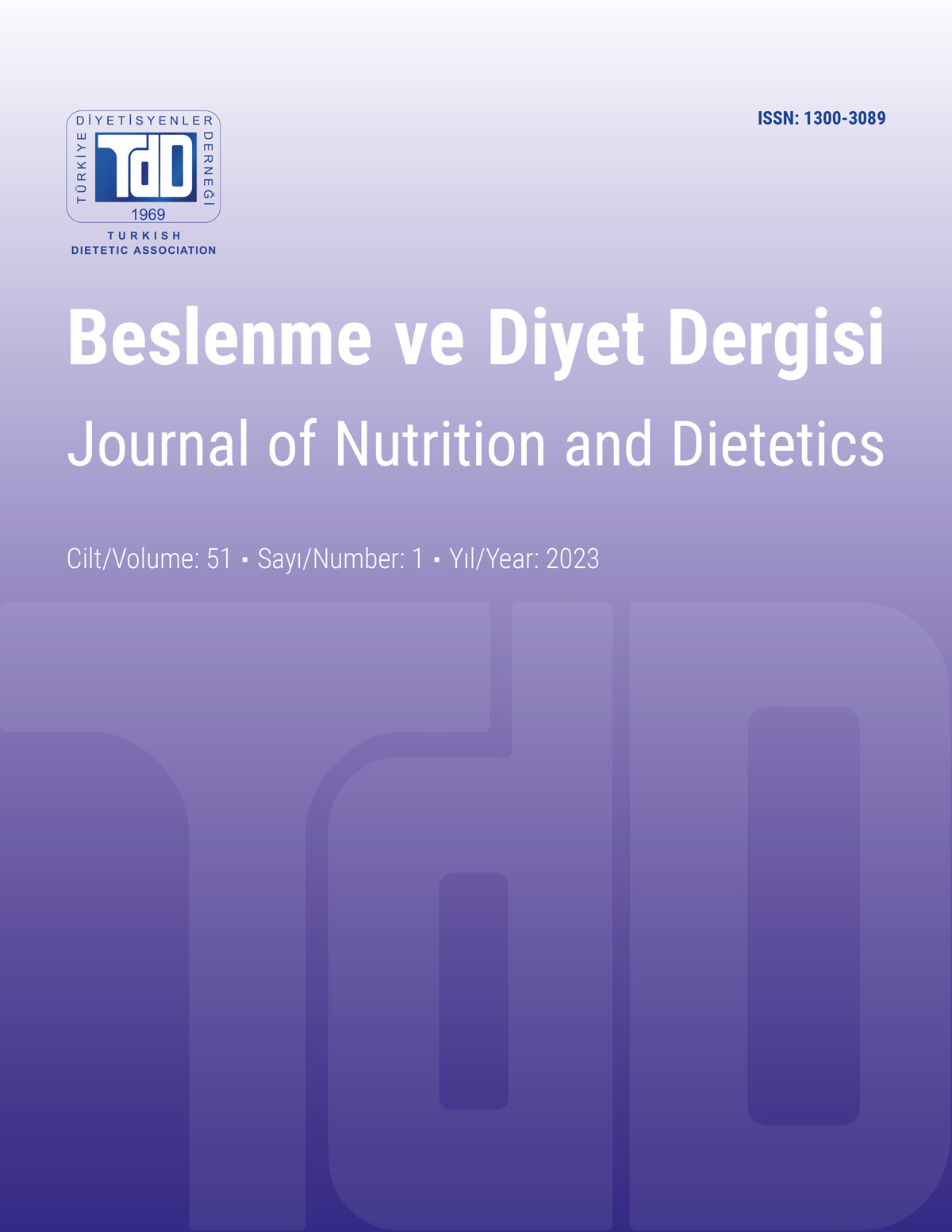Development of Mobile Healthy Living Application and the Effect of Using it on Nutrition Habits of University Students
DOI:
https://doi.org/10.33076/2023.BDD.1716Keywords:
Mobile application, healthy nutrition, nutrition knowledge level, physical activityAbstract
Aim: This study was carried out to develop a mobile “Healthy Living Application” and to evaluate the effect of using it on the nutritional habits, water consumption and physical activity levels of university students.
Subjects and Methods: In the first stage, a mobile healthy living application was developed by the researchers. In the next stage, a questionnaire was applied to 99 volunteer university students and the application was introduced. In addition to descriptive information, dietary habits and 3-day food consumption records were determined. The questionnaire also includes the “Nutrition Knowledge Level Scale for Adults (NKLSA)”, “Attitude Scale for Healthy Nutrition (ASHN)” and “International Physical Activity Questionnaire (IPAQ)”. The developed mobile application was used for one month and then the questionnaire was applied again.
Results: The study was completed with 86 students, and it was determined that the basic nutritional knowledge level of 8.1% of the individuals was “bad” before using the application, and it decreased to 1.2% after using the application. According to basic nutrition scores, the frequency of individuals with “very good” knowledge level was 2.3% before using the application, while it increased to 29.1% after using the application. In food preference knowledge scores, the frequency of those with “bad” knowledge decreased (12.8% before; 2.3% after), while the frequency of those with “very good” increased (18.6% before; 47.7% after). The daily water consumption of both men and women after the application increased significantly compared to the pre-application. While 19.8% of the individuals were sedentary before using the application, it was observed that this value decreased to 9.3% after using the application.
Conclusion: It has been determined that the short-term use of the developed mobile application affects the nutritional knowledge levels, water consumption amounts and physical activity levels of university students positively, but it is thought that there is a need for studies investigating the effects of longer-term use.

